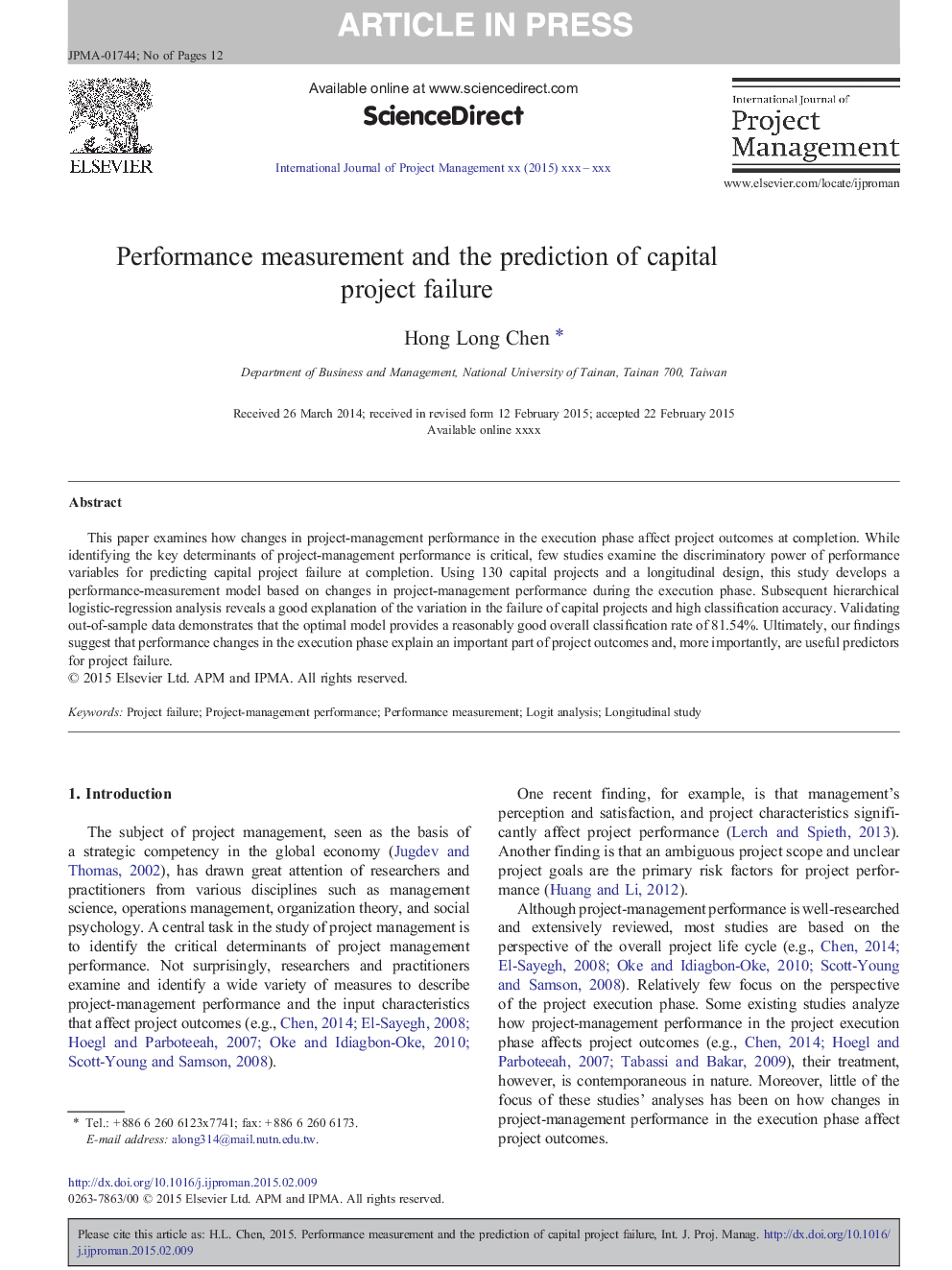| Article ID | Journal | Published Year | Pages | File Type |
|---|---|---|---|---|
| 6748166 | International Journal of Project Management | 2015 | 12 Pages |
Abstract
This paper examines how changes in project-management performance in the execution phase affect project outcomes at completion. While identifying the key determinants of project-management performance is critical, few studies examine the discriminatory power of performance variables for predicting capital project failure at completion. Using 130 capital projects and a longitudinal design, this study develops a performance-measurement model based on changes in project-management performance during the execution phase. Subsequent hierarchical logistic-regression analysis reveals a good explanation of the variation in the failure of capital projects and high classification accuracy. Validating out-of-sample data demonstrates that the optimal model provides a reasonably good overall classification rate of 81.54%. Ultimately, our findings suggest that performance changes in the execution phase explain an important part of project outcomes and, more importantly, are useful predictors for project failure.
Related Topics
Physical Sciences and Engineering
Engineering
Civil and Structural Engineering
Authors
Hong Long Chen,
